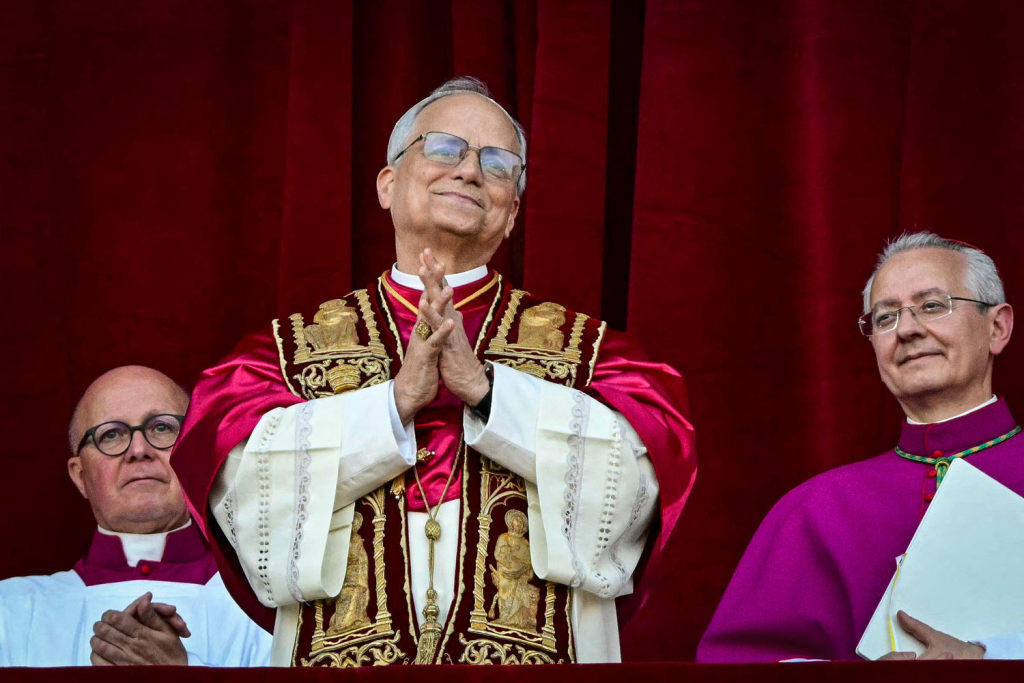Pope Leo XIV stands at the helm of the Catholic Church during a critical time, facing immense challenges that will determine the future trajectory of its leadership in global affairs. As he steps into this pivotal role, Leo must navigate the complex waters of Catholic Church leadership, especially against the backdrop of geopolitical issues affecting the Vatican. His papacy follows Pope Francis, whose progressive policies sparked significant dialogue around pivotal topics like the sexual abuse scandal within the church and the ideological divide between progressive and conservative factions. Critics and supporters alike eagerly anticipate whether Leo will uphold Francis’s broader inclusive vision or revert to a more traditional approach. With these pressing issues on the agenda, the decisions of Pope Leo XIV could reshape the church’s influence and relevance in a rapidly changing world.
As the 266th pope of the Catholic Church, Pope Leo XIV inherits a legacy filled with both opportunities and challenges that stem from ongoing issues within the church and the world at large. His papacy comes at a time when many observers are closely watching how he will approach enduring matters such as the church’s internal sexual abuse scandal and its positioning amidst shifting demographics globally. Balancing the expectations of both progressive and conservative factions within the church will be a significant undertaking, as will addressing the broader implications of geopolitical tensions that impact the Vatican’s voice on the international stage. With a diverse Catholic population spread across continents, Leo’s leadership style will undoubtedly influence how effectively the church responds to these pressing social and political realities. Ultimately, this new pontiff holds the responsibility of guiding the church toward a path that reconciles its rich traditions with contemporary moral and ethical challenges.
Navigating the Sexual Abuse Scandal in the Catholic Church
The sexual abuse scandal has cast a long shadow over the Catholic Church, and as Pope Leo XIV ascends to the papacy, it appears as a top priority that demands urgent attention. With systemic failures leading to numerous cases over the past century, the outcry from survivors and advocacy groups has not waned. Many see Leo as having a crucial responsibility to not only address past abuses but to enact reforms that prevent future incidents. This involves a zero-tolerance policy that takes swift action against abusive clergy while rooting out those who have perpetuated the culture of concealment. As calls for transparency and accountability grow stronger, Leo is expected to spearhead institutional changes to aid healing and restore trust within the church and the communities deeply affected by these scandals.
Moreover, the moral urgency of tackling the sexual abuse crisis extends beyond just maintaining the church’s reputation. It touches upon wider issues of leadership and authority in a modern context. As Leo navigates this treacherous landscape, he must acknowledge that the church’s credibility hinges on its ability to take decisive actions against abusers, reinstating a sense of safety for its congregation. The initial steps taken by Leo may set the tone for his papacy, influencing how progressive reformers and conservative traditionalists within the church perceive him. A pivotal moment for Leo could be his willingness to engage in meaningful dialogue with abuse survivors, fostering a culture of empathy and understanding essential for genuine healing.
Frequently Asked Questions
What challenges will Pope Leo XIV face regarding the sexual abuse scandal in the Catholic Church?
Pope Leo XIV will inherit the ongoing sexual abuse scandal that has plagued the Catholic Church for decades. Experts emphasize that he must establish a zero-tolerance policy that not only removes abusive clergy but also addresses the institutional failures that have allowed these abuses to be hidden. This remains a critical challenge as campaigners demand more decisive action than what was previously seen during Pope Francis’ tenure.
How will Pope Leo XIV address the ideological divide in the Catholic Church?
As a potential successor to Pope Francis, Leo XIV faces the challenge of bridging the ideological divide between progressive and conservative factions within the Catholic Church. While Francis advocated for progressive policies, Leo’s approach could either continue this trend or revert to traditional conservative teachings, responding to the demands of those who seek to normalize stricter beliefs.
What role will Pope Leo XIV play in global geopolitics as the new leader of the Catholic Church?
Pope Leo XIV’s role in global geopolitics is poised to be significant, as he will represent the voice of over 1.4 billion Catholics worldwide. His stance on geopolitical issues, particularly in areas of conflict like Gaza, will be closely monitored. Leo’s ability to voice the Catholic Church’s position can position him as a moral authority in international affairs amidst growing global tensions.
How will Pope Leo XIV manage the geographic shifts in the Catholic Church’s demographics?
Pope Leo XIV will need to navigate the shifting demographics of the Catholic Church, particularly the growth of Catholic populations in Africa, Asia, and Latin America, against a backdrop of decline in Europe. To address these demographic changes effectively, Leo must prioritize the spiritual and social needs of followers in the Global South, emphasizing social justice and addressing local concerns.
What are the expectations for Pope Leo XIV regarding progressive vs conservative issues within the church?
Expectations for Pope Leo XIV are high regarding his stance on progressive versus conservative issues. His leadership will be scrutinized to see if he continues the inclusive policies of Pope Francis or leans towards a more conservative interpretation of Catholic doctrine. The new pope will have to address pressing issues like same-sex unions and social justice while balancing diverse views from various global regions.
| Key Points | Description |
|---|---|
| Sexual Abuse Scandal | The next pope must address ongoing sexual abuse scandals and implement a zero-tolerance policy. |
| Ideology | The ideological direction of the church is under consideration, with pressures from progressive and conservative factions. |
| Geopolitics | Pope Leo XIV will navigate global issues and decide on the church’s active or passive role in political commentary. |
| Geography | The pope must consider the demographic shifts in Catholicism, increasingly focusing on the Global South and its unique challenges. |
Summary
Pope Leo XIV faces a complex landscape as he steps into his role, grappling with pivotal challenges within the Catholic Church and in the world at large. His papacy will not only influence the spiritual guidance for 1.4 billion Catholics but also determine the church’s stance on pressing ethical issues and geopolitical matters. Balancing progressive and conservative ideologies, addressing the scars left by the sexual abuse scandal, and responding to the shifting demographics of the faithful will be crucial in defining his leadership. As the new pope navigates this multifaceted terrain, his ability to foster unity and address the concerns of a global congregation will be paramount.



